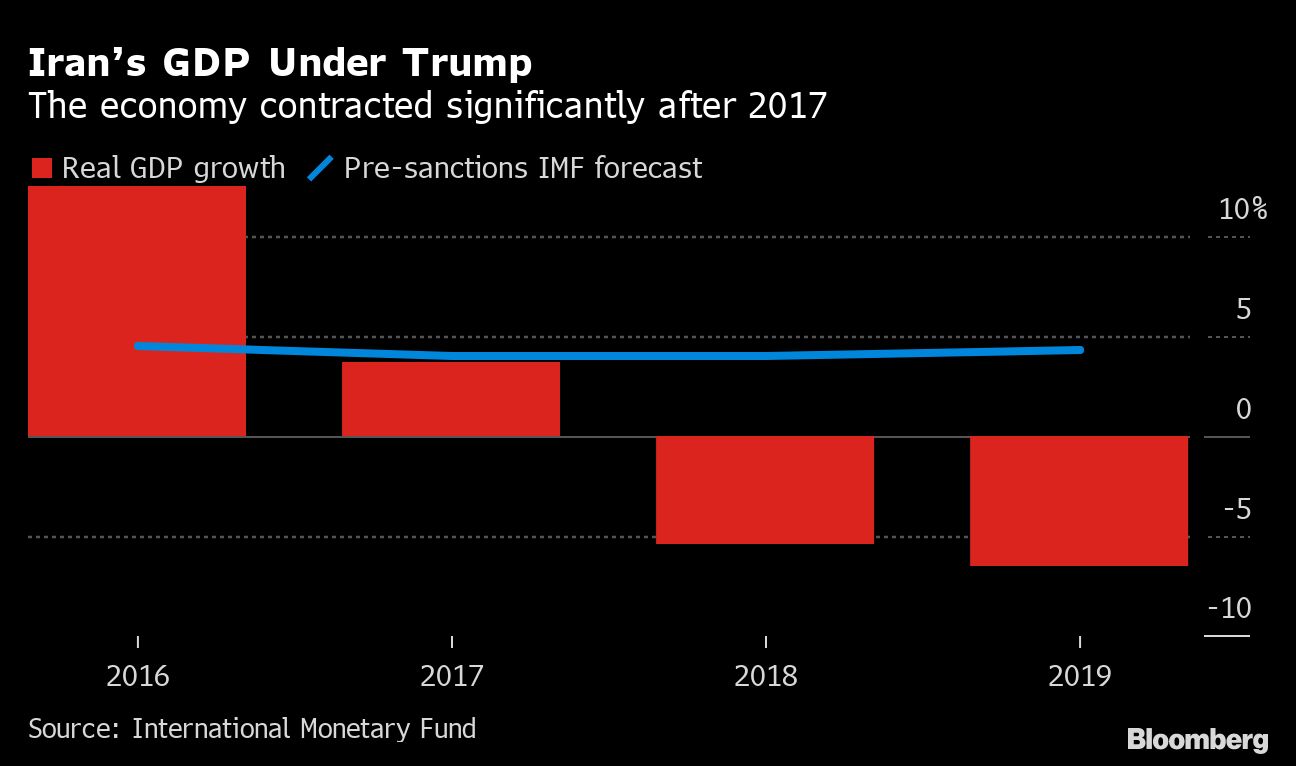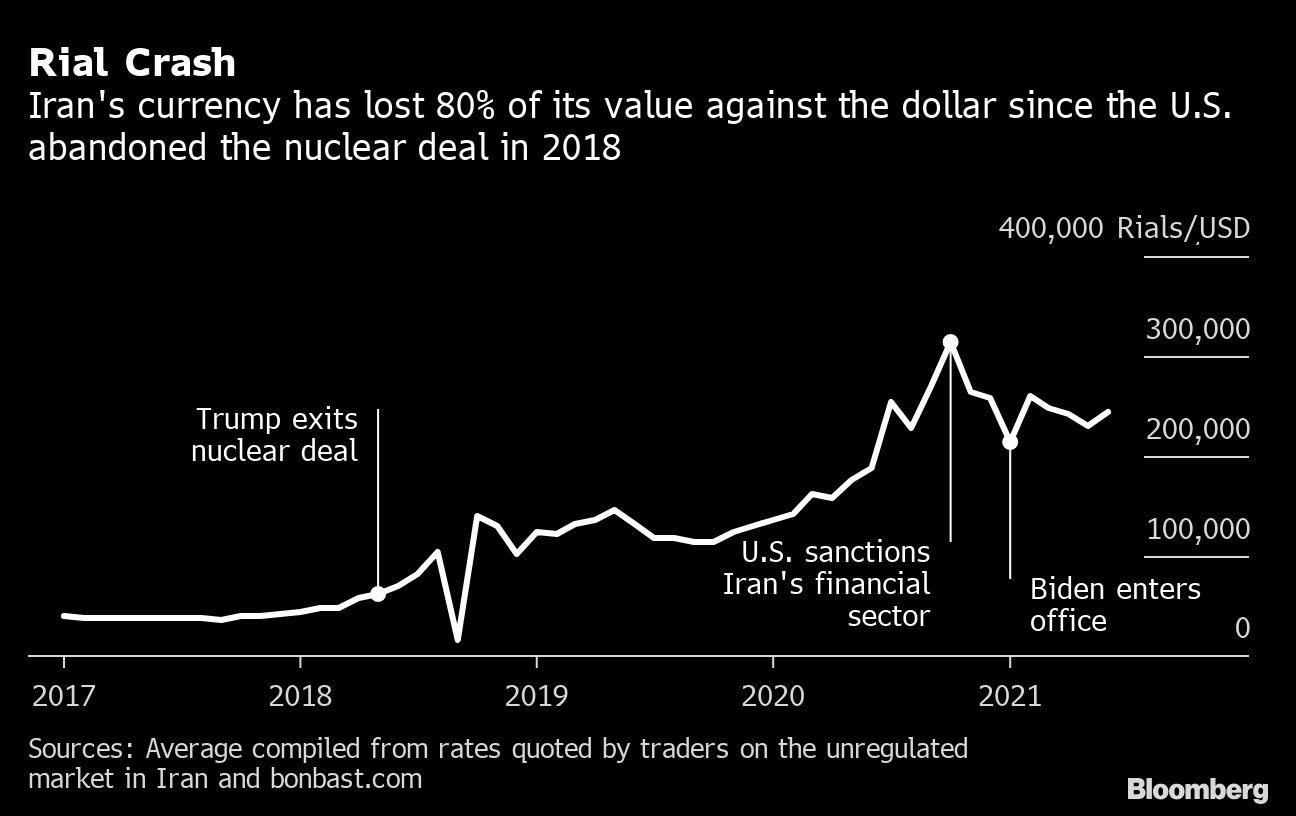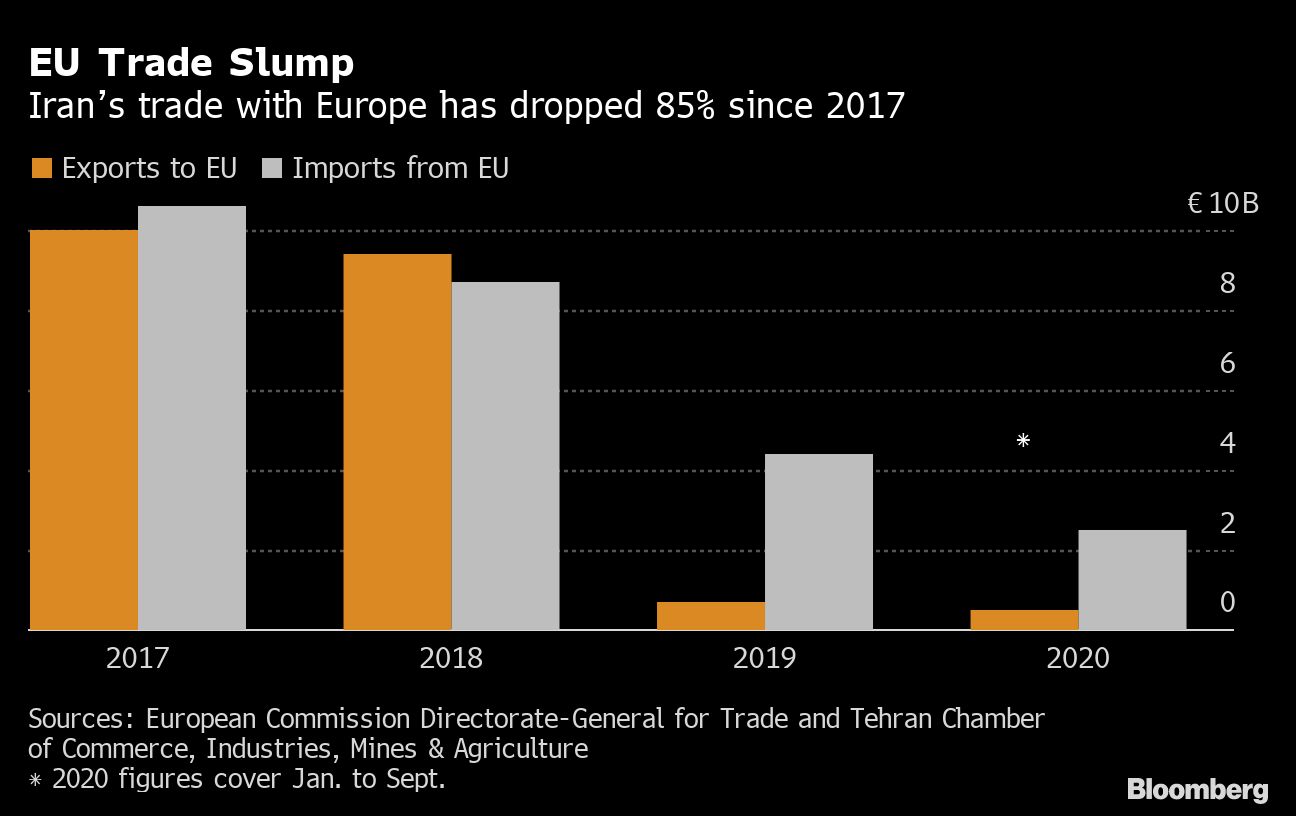Three charts show economic challenges for Iran’s new President
Published 19 Jun,2021 via Bloomberg Markets - President-elect Ebrahim Raisi -- a hardliner broadly hostile to the West -- has vowed to improve Iran’s economy and raise living standards for families by focusing on the country’s domestic resources, trade ties with regional allies, and strengthening industrial output.
He’s said he’ll preserve the nuclear deal that world powers are rushing to rescue during moderate President Hassan Rouhani’s remaining weeks in office, but has also said he doesn’t believe it should be a central concern for the country.
With or without better ties with the world, Raisi faces huge challenges as tough U.S. sanctions remain in place and Iran’s banks are isolated from much of the global economy.
Below are three charts that show the scale of Iran’s hardships and the key economic problems confronting Raisi:

Iran’s economy contracted sharply after former U.S. President Donald Trump reimposed sanctions on the country and pulled Washington out of the nuclear deal in May 2018, triggering a major slump in the rial.

The government of President Hassan Rouhani tried to control money markets using a fixed exchange rate, but the policy backfired and worsened the rout, leaving millions of ordinary families struggling to make ends meet. Spending power has dramatically declined as spiraling inflation and a much weaker currency have battered incomes.
The U.S. effectively embargoed sales of Iranian crude oil by threatening other countries with sanctions if they purchased energy from the Islamic Republic.
The drop in oil revenue and productivity in the sector and the scarcity of foreign currency damaged economic growth. Prior to Trump’s sanctions, the International Monetary Fund had expected Iran’s GDP to grow by about 4% in 2019, but instead it shrank by more than 6%.
The European Union, which is leading negotiations in Vienna to revive the nuclear deal, was one of Iran’s biggest trade partners before U.S. sanctions were reimposed.
Rouhani’s government was keen for the bloc to resume its position as the country’s top foreign trade partner after the nuclear deal came into effect in 2016. But those plans came to an abrupt halt after sanctions were reinstated and Iran’s imports from the EU were down 80% by the last quarter of 2020.

In his campaign, Raisi emphasized building trade ties and export markets with regional allies and didn’t address the future possibility that Iran could restore agreements with foreign companies that left the Islamic Republic after sanctions were reimposed in 2018. Hardliners often advocate stronger ties with China and Russia rather than with Europe.
©2021 Bloomberg L.P. All Rights Reserved. Provided by SyndiGate Media Inc. (Syndigate.info)
DISCLAIMER: This content is provided to us “as is” and unedited by an external third party provider. We cannot attest to or guarantee the accuracy of information provided in this article from the external third party provider. We do not endorse any views or opinions included in this article.

Golnar Motevalli